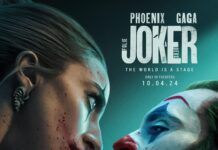The summer of 1969, was the Summer of Love—man landed on the Moon, Woodstock made history, and as always, racial injustice continued to remain hidden. Unquestionably, the year was packed full of beauty, love, and hatred:
President Richard Nixon pulled U.S. troops out of Vietnam.
The Stonewall Riots occurred, showing the plight of the gay community and their efforts at defending their rights.
The success of Apollo 11 and the U.S. landing on the Moon.
The assassination of President John F. Kennedy, Martin Luther King, Jr., and Malcolm X.
Woodstock.
But during that same summer, a different music festival took place 100 miles away. A cultural revolution swept Harlem for six back-to-back weekends, that brought over 300,000 people to Mt. Morris Park in Harlem, New York. The summer concert series, known as the Harlem Cultural Festival was free to all, bringing cultural legends…wait for it….Nina Simone, Stevie Wonder, Max Roach and Abbey Lincoln, B.B. King, Gladys Night and the Pips, The Staple Singers, Sly and the Family Stone, 5th Dimension, Mahalia Jackson, and Moms Mabley—just to name a few.
“I was 19 in 1969, the festival had the biggest crowds I can remember seeing at the time, a festival attendee reminisced. “I always related summertime to the potential of violence. There was quite a bit inside that year.”
Often described as “Black Woodstock”, long forgotten, the festival was filmed, but never released. After that summer, the footage sat in a basement, unseen for 50 years, keeping this incredible event in America’s history lost.
Until now.
Debuting for its World Premiere at the opening night of Sundance 2021 Film Festival’s first virtual edition, comes Summer Of Soul (…Or, When The Revolution Could Not Be Televised), directed by Ahmir “Questlove” Thompson, and produced by David Dinerstein, Robert Fyvolent, Joseph Patel, Mass Distraction Media, and Radical Media.
This is Questlove’s directorial debut, which couldn’t come at a better time, where our world is upside down. Our country is backwards, fighting the same systemic racism and injustice that was occurring back in 1969. Movements like Black Lives Matter are simply the evolution of what many leaders like MLK and Malcolm X were trying to fight and stop decades ago.
Lawrence, Harlem Festival’s producer and emcee, knew fashion and certainly had a tenacity for picking out talent. But strangely enough, Lawrence is also a mystery, with his whereabouts unknown, despite Quest and the filmmaker’s efforts to locate him. With the support of the city’s Parks Department, sponsorship of Maxwell House, and security provided by The Black Panthers (rather than the NYPD), the festival was able to live on, with Harlem’s liberal mayor, John V. Lindsay, or as he was described as “our blue-eyed soul brother” on stage welcoming all.
One festival attendee described the grounds of the park:
“I was a little kid. I remember being with my family, walking around the park and it was far as I could see. It was just black people. This is the first time I’d ever seen so many of us. It was incredible families, fathers, mothers, kids running around. I was one of those kids. Beautiful. Beautiful women. Beautiful men. It was like seeing royalty around the park. People were selling food–mama’s cooking. She had her grill, chicken, Mac and cheese, maybe some greens, and lemonade and Kool-Aid. She was selling beer, selling headbands, sweatpants, and blues. I remember it distinctly smelling like AfTER-SHAVE and chicken.”
Black America Lost Faith In This Country
Yet, the racial injustice that was occurring simultaneously, remained hidden in the shadows. A phenomenon that has resurfaced here in 2020, revealing that racism never disappeared with the Civil Rights Act—it evolved.
For the 50,000 people that day that we landed on the Moon, they weren’t watching the Moon landing. Instead, they were at the park in Harlem, attending the soul festival.
According to one attendee, for many of the people in attendance at the Harlem Cultural Festival, the Apollo 11 mission wasn’t any more relevant than the Festival itself:
“I think it’s very important, but I don’t think it’s any more relevant than the Harlem Festival here. It’s equal.”
1969 was a tough year, especially for Harlem. The people living in Harlem weren’t focused on the Moon, because they were dealing with the everyday realities of systemic racism and injustice. But also, the biggest problem during the time of Apollo 11, was the heroin epidemic that was plaguing Harlem.
“The festival was one way to alleviate the pain,” said one festival attendee.
Much of Black America in ‘69 witnessed many of their leaders jailed and killed, as the result of what one festival attendee described as “a climate of hate.” With the assassination of former U.S. President John F. Kennedy in ‘63, and Malcolm X in ‘65, followed by the assassination of Martin Luther King, Jr. in April 1968.
One festival attendee reminisced about how “it just felt like our system was letting us down.”
“…instead of dealing with white liberals, we ‘ought to have been dealing with White America at its worst,” with enormous amounts of protests and civil unrest.
“There was a disproportionate representation of black men on the front lines of Vietnam.”
[motivational speech]: “…there is no need to go to Vietnam and shoot somebody who a honky says is their enemy; we ‘gonna shoot the cops that shoot our black brothers in the back in this country, thank you!”
The goal of the Festival may very well have been to keep black folks from burning up the city in ‘69.
Questlove’s documentary makes for a near-perfect opening for the Sundance 2021 Film Festival, which opens the eyes to one reality–our country is hurting, and its people, primarily Black America, are continuing to suffer. And what we all need is music and love to soothe the soul.
Featured image shows Sly Stone of Sly and the Family Stone, giving the crowd what they want, in a scene from the documentary ‘Summer of Soul.’








